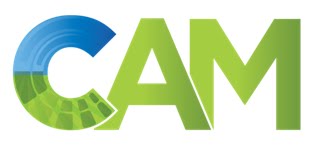The North Carolina Rural Infrastructure Authority (RIA) has approved seven grant requests to local governments totaling $2,639,793, Governor Roy Cooper announced today. The requests include commitments to create a total of 321 jobs, 191 of which were previously announced. The public investment in these projects will attract more than $53.7 million in private investment.
“When we invest in our rural communities, we uplift the state of North Carolina as a whole,” Governor Roy Cooper said. “These grants not only improve our state’s infrastructure, but offer rural residents a chance at greater economic opportunity, stability, and freedom through quality jobs.”
The RIA is supported by the rural economic development team at the North Carolina Department of Commerce. RIA members review and approve funding requests from local communities. Funding comes from a variety of specialized grant and loan programs offered and managed by N.C. Commerce’s Rural Economic Development Division, led by Assistant Secretary for Rural Development Kenny Flowers. Grants support a variety of activities, including infrastructure development, building renovation, expansion and demolition, and site improvements.
“Our rural infrastructure grants are tangible investments in the full potential of our state and its people,” said N.C. Commerce Secretary Machelle Baker Sanders. “Better public infrastructure welcomes more businesses and jobs to North Carolina, while inclusive economic development grows our economy and fosters an increased quality of life for our people.”
In Chatham County, A $100,000 grant will support the renovation of a 204,832-square-foot building in Goldston. The building is occupied by Conveyor Tech, LLC, a manufacturer of equipment in the electronics assembly industry, and one of two printed circuit board manufacturers in the United States. The company expects to create 20 jobs and invest $899,000 in this project.
The Industrial Development Fund – Utility Account program provides grants to local governments located in the 80 most economically distressed counties of the state, classified as Tier 1 or Tier 2. Funds may be used for publicly-owned infrastructure projects that are reasonably expected to result in new job creation. The IDF – Utility Account is funded through a process tied to the state’s signature Job Development Investment Grant (JDIG) program. When JDIG-awarded companies choose to locate or expand in a Tier 2 or Tier 3 county, a portion of that JDIG awarded is channeled into the Utility Account.
In addition to reviewing and approving funding requests, the N.C. Rural Infrastructure Authority formulates policies and priorities for grant and loan programs administered by N.C. Commerce’s Rural Economic Development team. Its 17 voting members are appointed by the Governor, Speaker of the House, and Senate President Pro Tem. The North Carolina Secretary of Commerce serves as a member of the authority, ex officio.
Visit the Rural Economic Development Division webpage for more information.
Read the full article on the NC Department of Commerce website.

